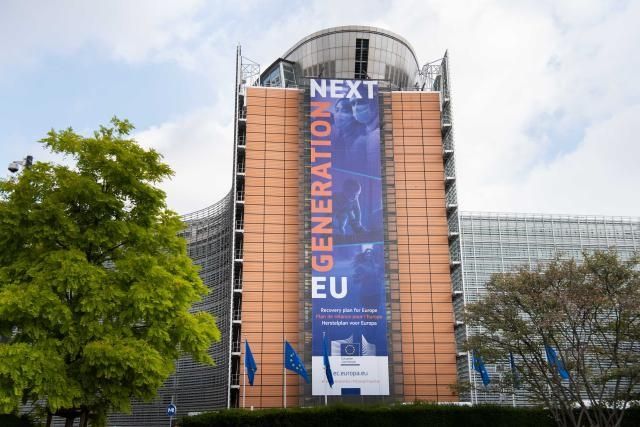The European Commission has today welcomed the agreement between the European Parliament and EU Member States in the Council on Europe’s next long-term budget and NextGenerationEU, the temporary recovery instrument.
Once adopted, the package of a total of €1.8 trillion will be the largest package ever financed through the EU budget. It will help rebuild a post-COVID-19 Europe, which will be greener, more digital, more resilient and better fit for the current and forthcoming challenges.
President Ursula von der Leyen said:
“I welcome today’s agreement on our Recovery Plan and the next Multiannual Financial Framework. We now need to move forward with finalising the agreement on the next long-term budget and NextGenerationEU by the end of the year. Help is needed for citizens and business badly hit by the coronavirus crisis. Our recovery plan will help us turn the challenge of the pandemic into an opportunity for a recovery led by the green and digital transition”.
Main elements of the compromise include:
- More than 50% of the amount will support modernisationthrough policies that include research and innovation, via Horizon Europe; fair climate and digital transitions, via the Just Transition Fund and the Digital Europe Programme; preparedness, recovery and resilience, via the Recovery and Resilience Facility, rescEU and a new health programme, EU4Health.
- Traditional policies such as cohesion and common agricultural policy also continue to receive significant financial support, so much necessary to ensure stability in times of crisis and their modernisation that should contribute to the recovery and the green and digital transitions.
- 30% of the EU funds will be spent to fight climate change, the highest share ever of the largest European budget ever. The package also pays a specific attention to biodiversity protection and gender equality.
- The budget will have strengthened flexibility mechanisms to guarantee it has the capacity to address unforeseen needs. This is making it a budget fit not only for today’s realities but also for tomorrow’s uncertainties.
- As proposed in May 2020 and agreed by EU leaders on 21 July 2020, to finance the recovery, the EU will borrow on the markets at more favourable costs than many Member States and redistribute the amounts.
- A clear roadmap towards new own resources to help repay the borrowing. The Commission has committed to put forward proposals on a carbon border adjustment mechanism and on a digital levy by June 2021, with a view to their introduction at the latest by 1 January 2023. The Commission will also review the EU Emissions Trading System in spring 2021, including its possible extension to aviation and maritime. It will propose an own resource based on the Emissions Trading System by June 2021. In addition, the Commission will propose additional new own resources, which could include a Financial Transaction Tax and a financial contribution linked to the corporate sector or a new common corporate tax base. The Commission will work to make a proposal by June 2024.
- In terms of EU budget protection, now, for the first time, the EU will have a specific mechanism to protect its budget against breaches of the rule of law as agreed on 5 November. At the same time, final beneficiaries of EU funding in the Member State concerned will not be negatively affected by this mechanism.
Next steps
The MFF Regulation and the Interinstitutional Agreement endorsed today must now be formally adopted by the European Parliament and the Council, in line with their respective roles and procedures.
In parallel, work must continue towards a final adoption of all other elements of the package, including the sectoral legislation and the Own Resources Decision.
In the case of the Own Resources Decision, which will enable the Commission to borrow, ratification by all Member States in line with their constitutional requirements is also needed. The European Parliament, at the September plenary, has already provided its positive opinion on this piece of legislation. The adoption by the Council is the next step.
In parallel, negotiations on the annual budget for 2021 have to take place. The 21-day conciliation period, during which the European Parliament and the Council should reach an agreement, runs between 17 November and 7 December this year.
The Commission remains fully committed to accompany the process.







Leave a Reply